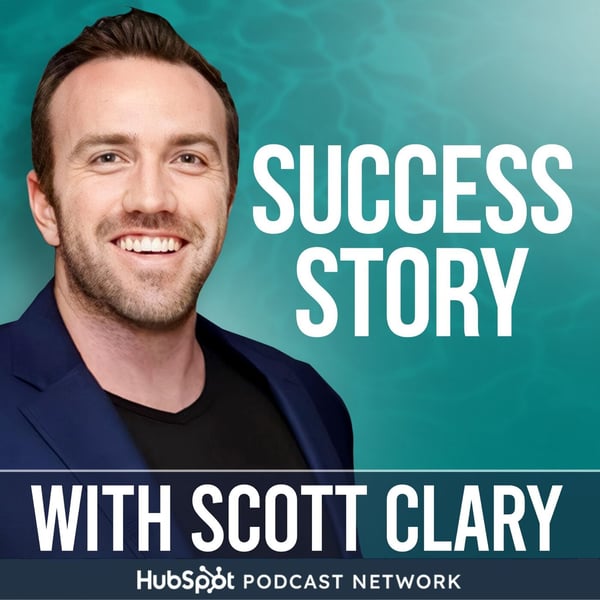Lessons - How One Book About Naval Ravikant Built a Publishing Empire | Eric Jorgenson - Author & Angel Investor
Success Story with Scott D. Clary
Success Story Media
4.6 • 1.9K Ratings
🗓️ 8 August 2025
⏱️ 10 minutes
🧾️ Download transcript
Summary
➡️ Like The Podcast? Leave A Rating: https://ratethispodcast.com/successstory
In this "Lessons" episode, Eric Jorgenson, author and angel investor, shares how distilling Naval Ravikant’s massive body of ideas into a clear, concise book laid the foundation for a successful publishing venture. He explains how audience feedback—from tweets to beta readers—helped him cut through over a million words of source material to create a timeless and useful book, and why great writing means relentlessly editing out what doesn’t resonate. Eric highlights how today’s most impactful authors, like James Clear and Morgan Housel, test their ideas across multiple platforms before publishing, and encourages creators to use the data they already have to identify what truly connects. He also offers practical advice on launching and sustaining a book’s success through long-term audience engagement, emphasizing that the best books solve real problems quickly and are shared through word of mouth—not just clever marketing.
➡️ Show Links
https://successstorypodcast.com
YouTube: https://youtu.be/-lVtzA9NVUA
Spotify: https://open.spotify.com/episode/5Dxa13aHCQzK65Wtd3874Z
➡️ Watch the Podcast on YouTube
https://www.youtube.com/c/scottdclary
Transcript
Click on a timestamp to play from that location
| 0:00.0 | In this lesson's episode, learn how best-selling authors refine massive bodies of work into timeless, useful books by focusing only on what truly resonates. |
| 0:07.8 | Learn how audience feedback from tweets to beta readers helps shape what stays and what gets cut and learn why the best books solve real problems quickly, making them worthy of your time and attention. |
| 0:27.2 | What do you think, you know, when you look at all the different ideas that you brought into this book, what, how did you select the universally, universally applicable |
| 0:32.7 | ones and maybe just some wisdom for other authors that are trying to figure out what to put |
| 0:37.0 | in their body of work versus what to leave out so that it has the highest chance of like commercial success. |
| 0:42.8 | Yeah. So I think my process is weird because I'm starting with a huge body of work. But I started |
| 0:47.9 | my napkin math is like there were well over a million words of like source material that I worked |
| 0:53.6 | from. everything that |
| 0:54.7 | all had ever shared publicly like went into the pot and I just tried to cook it all down and |
| 0:58.3 | cook it all down and the final book is like 40 maybe 50,000 words and it just is like doing a |
| 1:05.7 | giant jigsaw puzzle and so it's trying to like pick up every idea understand it figure out |
| 1:10.3 | which ideas it connects to how to create a thread through them. And, you know, my first draft, it's like funny in retrospect. My first draft was like 150,000 words. It was like a massive thing. And I sent it to my friends. And I was like, tell me what you think of the book. And they're like, all of them were were like I really liked what I read but I did not |
| 1:29.5 | shit. I was like okay thank you which parts did you jump to what did you skip like where you know |
| 1:35.7 | where were you excited to flip to and it was just a process of like cutting out anything that |
| 1:41.4 | didn't really vibe with people and And that was heartbreaking because there's a |
| 1:46.1 | bunch of stuff in there that I thought was really interesting that I loved that I wanted people to |
| 1:49.1 | know. And Tucker has got great lines that I've now adopted on this, which is like, nobody gives |
| 1:54.9 | a shit what you want them to know. Like they want what serves them. Like, who are you to? You're not prescribing. You're not lecturing. Like, they want what serves them. Like, who are you to? |
| 2:02.3 | You're not prescribing. |
| 2:03.5 | You're not lecturing. |
| 2:04.6 | Like, nobody wants to be on the receiving end of a lecture. |
| 2:08.6 | Deliver things that the reader wants. |
... |
Transcript will be available on the free plan in 17 days. Upgrade to see the full transcript now.
Disclaimer: The podcast and artwork embedded on this page are from Success Story Media, and are the property of its owner and not affiliated with or endorsed by Tapesearch.
Generated transcripts are the property of Success Story Media and are distributed freely under the Fair Use doctrine. Transcripts generated by Tapesearch are not guaranteed to be accurate.
Copyright © Tapesearch 2025.

